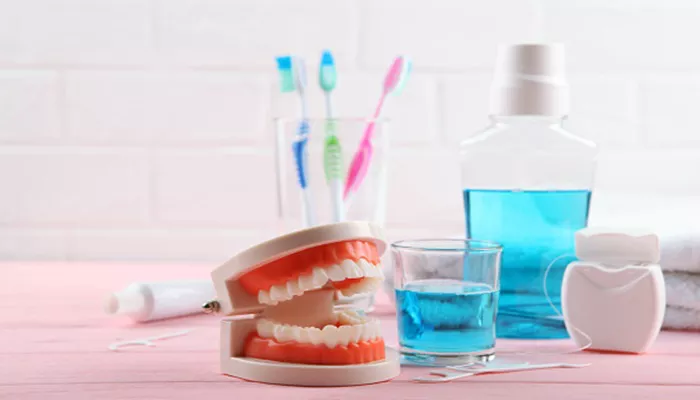Dentures are an essential dental solution for those who have lost teeth, helping restore function and appearance. However, keeping dentures clean is crucial for oral health and overall hygiene. Many people rely on commercial denture cleaners, but these may contain harsh chemicals that can cause irritation. Fortunately, there are natural ways to clean dentures effectively without the use of artificial ingredients.
This article explores the 8 best natural ways to clean dentures using household ingredients that are safe, affordable, and eco-friendly.
Why Is It Important to Clean Dentures Naturally?
Cleaning dentures regularly helps prevent plaque buildup, bad breath, and infections like oral thrush. While commercial cleaners can be effective, they may contain chemicals that can:
- Irritate sensitive gums
- Leave a strong chemical taste
- Be expensive for long-term use
- Harm the environment with toxic residues
Natural denture cleaning solutions can be just as effective while being gentler and safer for daily use.
1. Baking Soda
Baking soda is a well-known natural cleaner with mild abrasive properties that help remove stains and bacteria from dentures. It also neutralizes odors, keeping dentures fresh.
How to Use Baking Soda to Clean Dentures
Mix one tablespoon of baking soda with one cup of warm water.
Soak the dentures in the solution for 30 minutes to one hour.
Use a soft brush to scrub the dentures gently.
Rinse thoroughly with clean water before wearing them.
Baking soda is effective in removing plaque and food debris while being gentle on dentures.
2. White Vinegar
White vinegar is a natural disinfectant that helps break down tartar and kill bacteria without damaging dentures.
How to Use White Vinegar to Clean Dentures
Mix equal parts white vinegar and warm water in a cup.
Soak the dentures in the solution overnight.
In the morning, brush them gently with a soft toothbrush.
Rinse well with water before use.
If the dentures have metal parts, avoid using vinegar regularly, as it may cause corrosion.
3. Hydrogen Peroxide
Hydrogen peroxide is a natural antibacterial agent that helps remove stains and eliminate germs from dentures.
How to Use Hydrogen Peroxide to Clean Dentures
Mix one part 3% hydrogen peroxide with one part water.
Soak the dentures in the solution for 15-20 minutes.
Brush gently with a soft toothbrush to remove any remaining debris.
Rinse thoroughly with water before wearing.
Hydrogen peroxide also helps whiten dentures, making them look fresher.
4. Lemon Juice
Lemon juice contains citric acid, which helps dissolve plaque and tartar naturally while leaving dentures smelling fresh.
How to Use Lemon Juice to Clean Dentures
Squeeze the juice of one fresh lemon into a cup of warm water.
Soak the dentures for 30 minutes.
Brush with a soft toothbrush.
Rinse well with water before putting them back in your mouth.
Avoid soaking dentures for too long, as citric acid can weaken them over time.
5. Salt Water
Salt is a natural antibacterial agent that helps remove plaque and kill germs on dentures. It also soothes irritated gums.
How to Use Salt Water to Clean Dentures
Dissolve one teaspoon of salt in a cup of warm water.
Soak the dentures in the solution for 15-20 minutes.
Scrub with a soft toothbrush if needed.
Rinse thoroughly with fresh water before wearing.
This method is gentle and safe for daily use.
6. Aloe Vera Gel
Aloe vera has natural antibacterial and antifungal properties that help clean dentures while soothing gum irritation.
How to Use Aloe Vera to Clean Dentures
Apply a small amount of pure aloe vera gel onto the denture surface.
Gently brush with a soft toothbrush.
Rinse well with water before use.
Aloe vera helps keep dentures free from bacteria while also being gentle on sensitive gums.
7. Coconut Oil Pulling
Oil pulling with coconut oil is an ancient method used to kill bacteria and promote oral hygiene. It can also help remove plaque from dentures.
How to Use Coconut Oil for Denture Cleaning
Take one tablespoon of coconut oil and swish it around your mouth for 5-10 minutes.
Spit it out and rinse your mouth with warm water.
Brush dentures with a soft toothbrush afterward.
This method also helps keep the gums healthy and hydrated.
8. Castile Soap
Castile soap is a natural, chemical-free soap made from vegetable oils. It can be used as a mild, non-toxic cleanser for dentures.
How to Use Castile Soap to Clean Dentures
Add a few drops of unscented Castile soap to a cup of warm water.
Dip a soft toothbrush into the solution and gently scrub the dentures.
Rinse thoroughly with water before putting them back in your mouth.
Castile soap effectively removes dirt and bacteria without causing irritation.
Additional Tips for Natural Denture Care
While cleaning dentures naturally, follow these extra tips for the best results:
Avoid hot water: Hot water can warp dentures, causing them to lose their shape. Always use lukewarm or cool water.
Brush daily: Even with soaking methods, brushing is essential to remove stubborn stains and food particles.
Store properly: Keep dentures in water or a moist environment when not in use to prevent them from drying out.
Visit a dentist regularly: Professional check-ups ensure that dentures fit well and remain in good condition.
Conclusion
Keeping dentures clean is essential for oral hygiene and overall health. Instead of relying on chemical-laden commercial cleaners, these 8 natural methods offer safe, effective, and eco-friendly ways to maintain denture cleanliness.
Whether using baking soda, vinegar, hydrogen peroxide, lemon juice, salt water, aloe vera, coconut oil, or Castile soap, these natural options help remove bacteria, stains, and odors while being gentle on dentures and gums.

